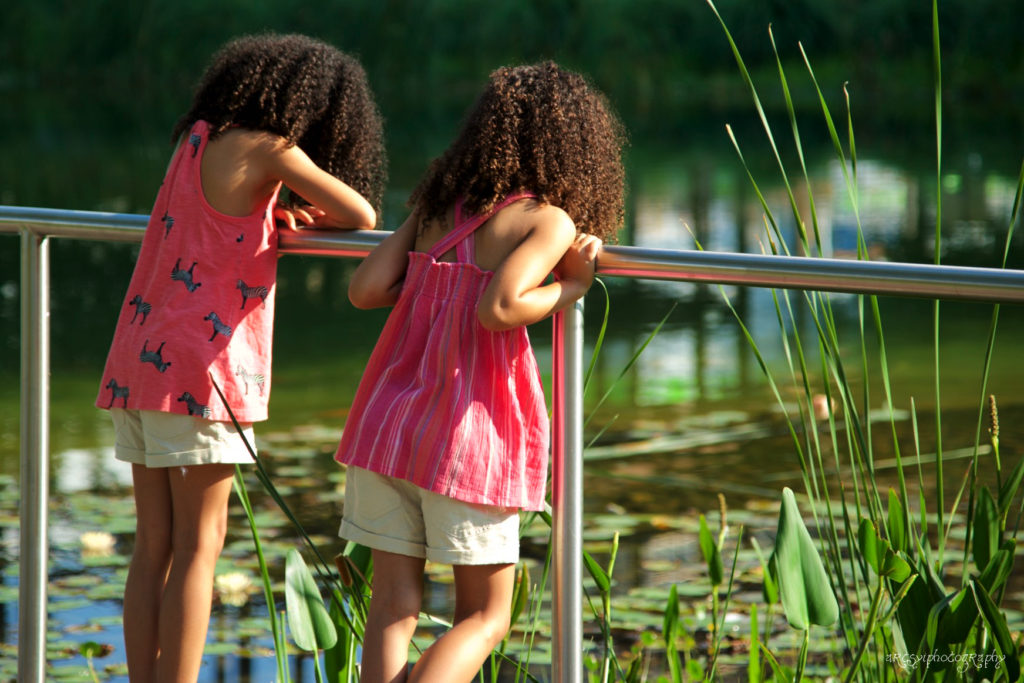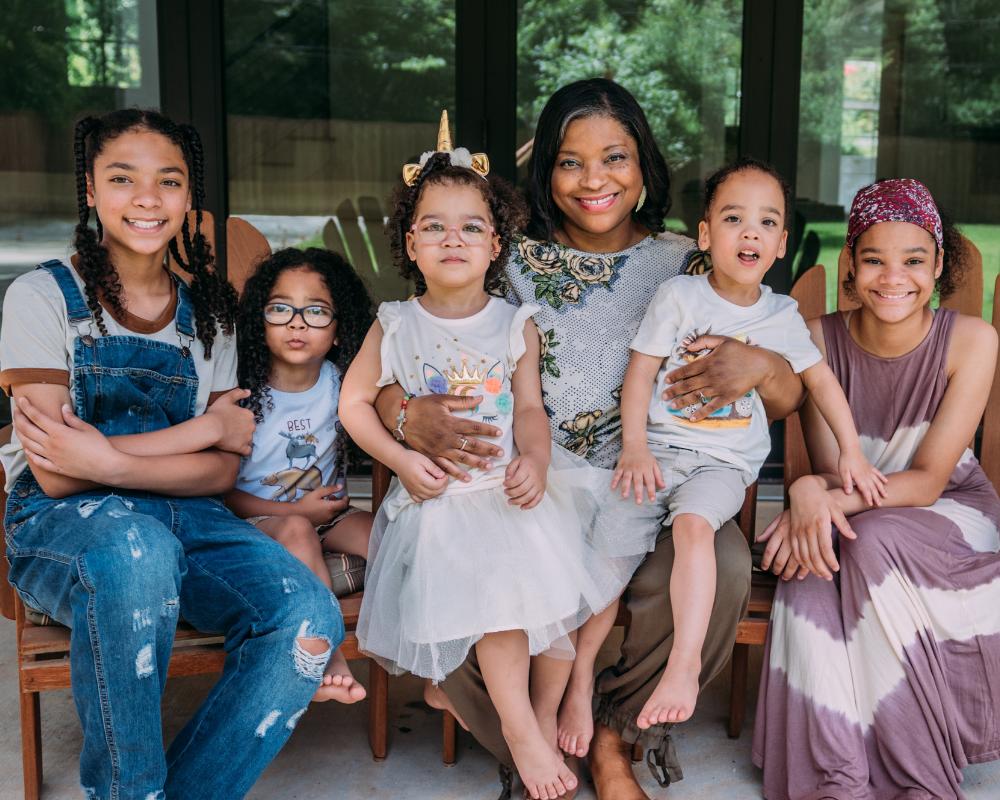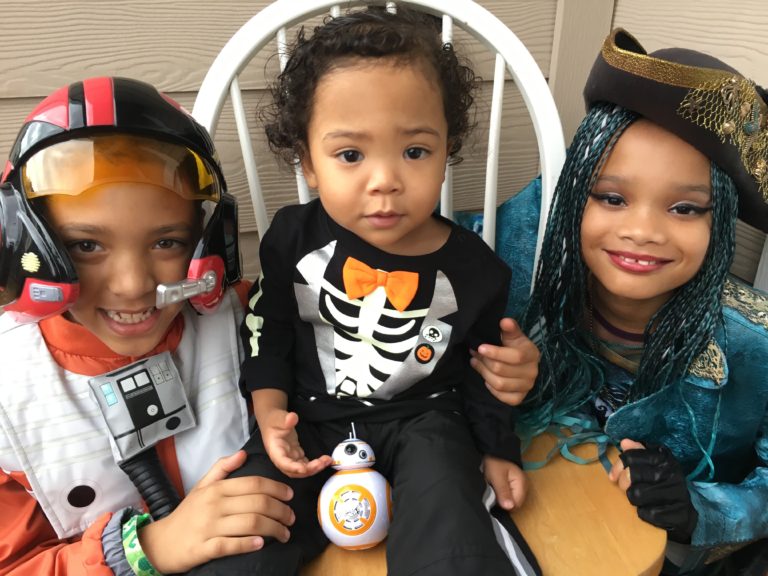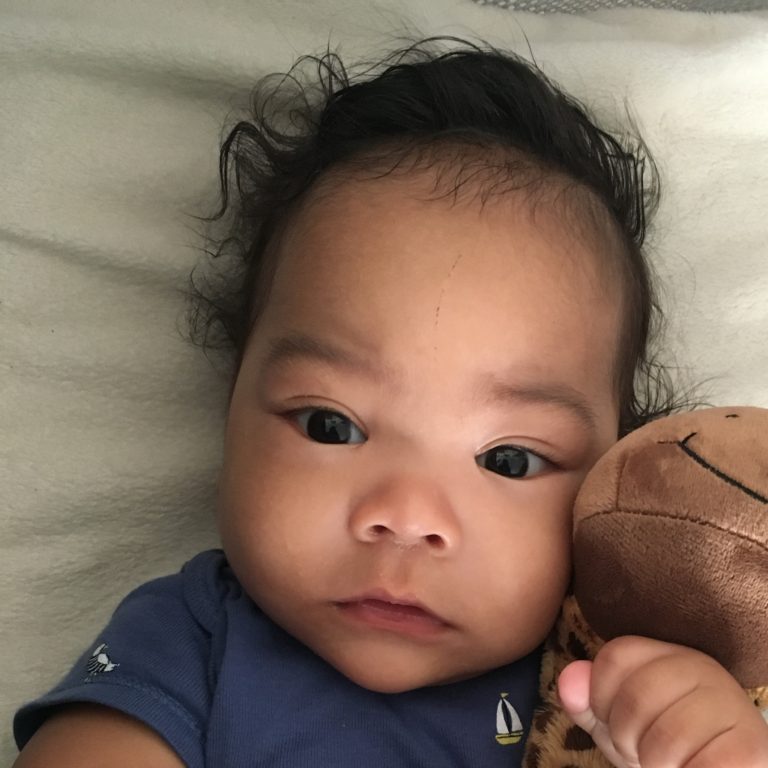If we are really being honest with ourselves, we are all feeling something about the impact that COVID-19 (novel corona virus) is having on our lives. And, if we as adults are a bit stressed and anxious, it stands to reason that the young ones around us are feeling the same way. So what do we do about it? Check out the 10 tips below for discussing this situation with the kiddos in your life.
1. Assess your own feelings and concerns.
First things first…how are you feeling? We could all use a little self-assessment here because most of us have never been through anything like this in our lifetimes. Sure…there have been (and still are) other global medical threats, but none that have caused quite the stir that COVID-19 seems to be causing. It’s good to know the answer to this question before you start the conversation so you can show your kids that you can relate and be honest with them.
Practical Tip: Ask yourself what you think will happen and determine what your biggest fear is surrounding that scenario.
2. Let them express their concern.
So…kids aren’t really thinking about whether there’s enough toilet paper in the bathroom for a family of 7 for a few weeks (months?). They’re thinking about all the ways in which their fun is coming to a screeching halt. They need to be able to release those feelings in a safe space where their concerns–however trivial they seem to us–are acknowledged and given a reassuring response.
Practical Tip: When there is a tough subject to address, I like to ask my kids to name one positive and one negative thing about the situation. This usually opens them up and gives a great starting place for a conversation.
3. Help them to understand good and bad ways to respond.
We finally got confirmation that this is, in fact, a global pandemic and the first thing people do is run out and buy all of the toilet paper, paper towels, hand soap, hand sanitizer and surgical masks their credit cards can hold. At the opposite end of the spectrum, other people are scoffing and poking fun at those folks, or even minimizing the threat. Sadly, many of us also only focus on ourselves and our own situations, when this is a threat to the entire community. It’s important to help our kids to focus on the greater good as well as their own. Right and wrong are relative terms depending upon one’s own moral standard, but there are good things we can do to help our kids.
Practical Tip: Each day, decide on one thing to do for the good of the greater community or for someone else, and execute that thing. It could be writing a letter to someone, or drawing a picture and sending it virtually…even going grocery shopping for an elderly neighbor and leaving the packages on his or her doorstep. The one good thing can also be for someone else in the home on some days. Try to get everyone in the family involved.
4. Be a good example yourself.
We’ve all heard the old adages that “actions speak louder than words” and that we should “lead by example.” It’s well-known by most parents that kids are going to model their parents’ behavior, even when told not to. So if we want to help our kids respond to crises in a healthy way, we should take a good look in the mirror. What do they see in us? We should check our own words, actions, facial expressions, tone of voice and body language. Kids pick up on all of these verbal and non-verbal cues and will remember how we responded in difficult situations.
Practical Tip: If possible, you could ask another adult to observe you and your reactions relative to the current global situation. Be open to their constructive feedback about how your general temperament may be coming across to your children.
5. Put a positive spin on the life interruptions caused by the threat.
Okay…so none of us feel super excited to get to know the viral sensation that is COVID-19 aka novel corona virus. I mean…who really wants to make history this way? Well, whether we like it or not, this naughty bug is here to stay for a while and we have to find some ways to keep our spirits lifted and our families feeling light-hearted. My kids aren’t in high school yet, but it really saddens me to know of some of the high school seniors in my life that are missing proms and other memorable moments as their primary education comes to an end. For my fourth graders, they were really upset that an upcoming singing performance they were auditioning for as a special act may be completely cancelled. It’s the main event that the girls in their choir look forward to each year. As they were looking at me with long faces, I felt compelled to also tell them of the news that the standardized test that all the kids stress about each year (and dread) was also cancelled. Shouts, gleeful yelps, jumping up and down and arms waving in celebration quickly erased the disappointment from their demeanors. It’s fun to find the silver lining in dark situations, and our kids sometimes need help with this…as do we.
Practical Tip: My kids keep saying over and over again that they are really happy to be together as a family during this time. Since this is their ultimate silver lining, I’m trying to show them that I am happy to be with them too. I try to take even more opportunities to run with them and wrestle with them and play hide-and-seek with them. We have had so many more family dance parties and interesting conversations. Whatever you can do to make this a more fun and happy time for them, just do it!
6. Stay informed, and help them to be informed.
There is SO MUCH BAD INFORMATION floating around in the news, on the internet and especially by word-of-mouth. This is a global threat and everyone everywhere is talking about it! It’s the main event and it has taken top billing over any other issue or event in our world today. There are so many resources to use to get the information we need to help our kids understand what’s happening right now. A great place to start for accurate and up-to-date information regarding the coronavirus is the World Health Organization (WHO). Check out their website at https://www.who.int/ . Another trusted website to peruse for information related to the virus is that of the Centers For Disease Control (CDC), at https://www.cdc.gov/ . Additionally, I watch a daily press conference conducted each morning by our city mayor’s office to get the most accurate local information for our area. It’s imperative to glean your info from reputable sources.
Practical Tip: Read over these tips from the WHO for working with your children during the COVID-19 crisis. You can download these pages as well: https://www.who.int/emergencies/diseases/novel-coronavirus-2019/advice-for-public/healthy-parenting . You should also talk with your kids about the symptoms of coronavirus, which can be found here https://www.cdc.gov/coronavirus/2019-ncov/symptoms-testing/symptoms.html . Lastly, we should empower them with the knowledge needed to prevent the spread of the infection, as found In this printable flyer https://www.cdc.gov/coronavirus/2019-ncov/downloads/stop-the-spread-of-germs.pdf . One key thing they need to understand is how to effectively wash their hands. Here is an example of an instructional video you can find online (there are many)… https://www.facebook.com/masteryhlee/videos/2907318842688293/?v=2907318842688293
7. Talk about the past, present and future.
This is a tricky one but I wanted to be really honest with my children and prepare them for what life can truly bring. We should talk to our kids about global health threat precedents, whether it be something as somber as the pandemic flu of 1918, or more recent threats such as H1N1 of 2009 and SARS (in the coronavirus family) of 2003. This gives them a historical perspective that, while global health threats are very scary in the midst of the crisis, with everyone working together, these threats eventually subside for the majority of the population. Life changed drastically for a while, and then things eventually got back to normal. I usually get most questions about the future from my kids when they are bored or agitated. “Ugh! How much longer do we have to stay home? When can we see our friends again?” Those are the perfect times to set some expectations for them that we don’t know what the future holds. All we can do is follow the guidelines set forth by the officials, take care of ourselves and others to the best of our ability, pray for the world and hope for the best.
Practical Tip: Be sure to gather some knowledge of previous global health crises to be used in these discussions with your kiddos. Here is a link to a timeline on pandemic health threats throughout the years. https://www.history.com/topics/middle-ages/pandemics-timeline
8. Let them participate in the preparation process.
There are many things to be done to prepare a family to be home for an undetermined amount of time. It can feel quite stressful for the adults in the home, so why not get the kids involved? Let them sit down with you and make a 2-week meal plan so that you can go and stock up at the store. Allow them to help you plan out the educational/homeschool activities for each day. It will help them to feel like a part of the family planning and it will help the parents because you will have buy-in from the kids and less arguments over the daily activities and meals.
Practical Tip: Every night before bed, have each kid that is old enough pick their snacks for the next day and put them in a container that is accessible to them. This will cut down on the need for them to incessantly ask you for snacks, and it will help them learn to manage their food portions more effectively.
9. Keep it light (but address the serious nature of the issue).
This one is simple. It just means we have to speak about the crisis in such a way that we give our young ones the hope and the confidence that, while this situation is serious and very concerning, we will get through this. Even though we are operating in the midst of complete uncertainty with everything (our jobs, church, school, the economy, the fate of our favorite restaurants, etc), our kiddos just want to know that they can carry on with their lives–albeit in social isolation for now.
Practical Tip: At least a few times a week, have your kiddos write or name 3 things that they are grateful for since the coronavirus became a global threat. To set the tone, you will probably have to do this one on your own (to check your own attitude of gratitude) before going through the exercise with your kids.
10. Connect with family and friends in other regions.
It’s difficult for children to comprehend that this virus is a global threat, and that it affects everyone they know. It’s good for them to know that they are not the only ones going through this. My 3-year old watches a virtual circle time on his preschool’s Facebook page and he gets so excited each time it comes on. “Mommy…it’s my teacher! Can we go to school?” At first, he’s disappointed when I have to explain again that everyone has to stay home right now. But then, when he understands that all of his teachers and his friends are sitting at home doing the same thing, he always feels better. We just have to reassure them that they will see their friends and loved ones again soon and that the fun will still be there. One fun thing our church small group did was host a virtual dance party via Zoom. You can sign up for free at https://www.zoom.us/ . Our kids were so excited to see each other and dance together!
Practical Tip: At least 3 times per week during this time of social distancing, set up a voice or video call with a local friend or a relative in another state. Allow them to have a nice chat and be sure they talk about everyone having to stay at home right now.
If you found these tips helpful, please feel free to offer feedback and additional resources for everyone in the comments below. Let’s stay well, be kind and take care of each other.










Love the content and the personal view into how you are handling things in your own home!! Thanks for the practicals and resources. These are some great ideas! ❤️
I appreciate the feedback, Ashley. We are all trying to figure it out during this chaotic time. Best wishes to you and your family.
Thanks so much for the insight and practical tips! I especially like the positive spin point. That is not my strong suit, but I need to improve in that area for the sake of my babies!
Thanks for your response, Devika. I’m glad it helped. I’m trying to continue being intentional with positivity myself, since there is so much negative out there.